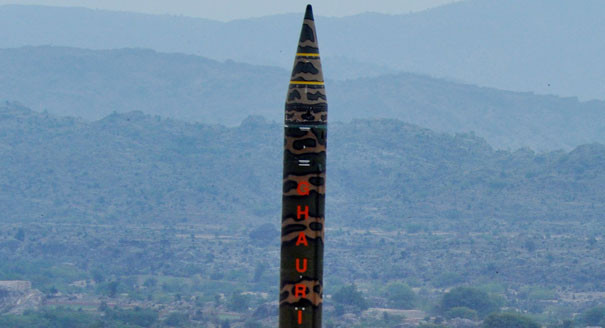Registration
You will receive an email confirming your registration.
Pakistan’s acquisition of nuclear weapons was probably over-determined—there were many reasons for it. More mysterious is why Pakistani nuclear capabilities were sold to North Korea, Iran, Libya, and perhaps others. Was this proliferation primarily the doing of one man—A.Q. Khan—or were Pakistani military and civilian leaders involved? And what might this history portend for the future?
Join Carnegie for a conversation with Hassan Abbas on his new book Pakistan’s Nuclear Bomb: A Story of Defiance, Deterrence, and Deviance, where these questions and more are explored.
Hassan Abbas
Hassan Abbas is professor and chair of the department of regional and analytical studies at the U.S. National Defense University. He is the author of the new book Pakistan’s Nuclear Bomb: A Story of Defiance, Deterrence, and Deviance.
Corey Hinderstein
Corey Hinderstein serves as vice president of international fuel cycle strategies at NTI. She was previously senior coordinator for nuclear security and nonproliferation policy affairs at the National Nuclear Security Administration, U.S. Department of Energy (DOE).
George Perkovich
George Perkovich is the Ken Olivier and Angela Nomellini Chair and vice president for studies at the Carnegie Endowment for International Peace, overseeing the Technology and International Affairs Program and Nuclear Policy Program.
